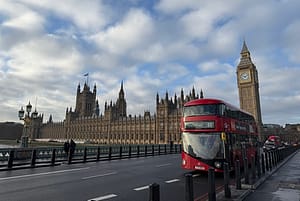It has been alleged on Tuesday that MPs “could be avoiding tax” on their second jobs as they put money through their private companies.
The Times reported that at least 10 MPs put their consultancy work through a personal company and this arrangement can bring tax advantages as they would initially avoid paying income tax of up to 45%, as the company pays 19% corporation tax instead.
Once the money is then taken out of the company additional tax up to the full rate of income tax must then be paid.
Critics are calling for this to be banned despite the practice being legal, and are arguing that “MPs should not be avoiding paying the taxes they’ve decided that the rest of the population should pay.”
Following the sleaze scandal in Westminster Parliament are now updating their standards rules and there are calls to ban the practice.
Sir Alistair Graham, the ex-chairman of the Committee on Standards in Public Life, told The Times, “This should be stopped as soon as possible.
“MPs should not be avoiding paying the taxes they’ve decided that the rest of the population should pay.”
Labour MP Dame Margaret Hodge, the former head of parliament’s Public Accounts Committee, blasted the arrangements as “completely outrageous.”
Dame Margret added, “We, as MPs, determine the tax everyone has to pay and for some in our midst to choose to use personal service companies in this way is particularly scandalous.”
The Times reported that Tory MPs Jake Berry and Sir Bob Neill and others have put their money for consultancy through personal companies that they own with their partners.
Tory MP Mark Prtichard also used a company he owns with his wife to pay his consultancy payments.
Sir Bob told MailOnline, “The suggestion this is done for any tax benefit from my point of view is absolute nonsense.
“The suggestion it is done with that in mind is nonsense.
“It is a very common procedure, particularly if anyone wants to keep their business finances separate from their personal finances.”
Berry told The Times he is not looking to avoid or minimise tax liability and he added, “I have received no remuneration whatsoever from my wife’s company.”
A Department for Education spokeswoman said, “The Secretary of State for Education has followed all due process, which includes adhering to the Ministerial Code and declaring all interests in the Commons register and to the Cabinet Office.
“In addition, all employment reported on was prior to him becoming a Minister.”






Leave a Comment